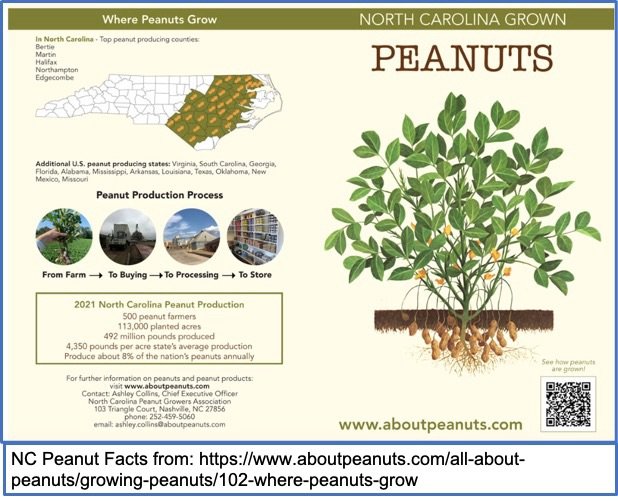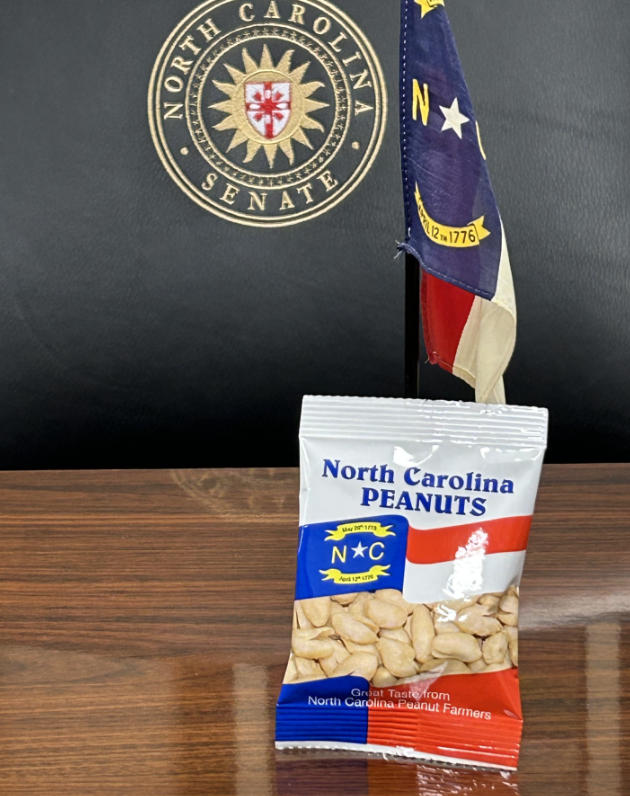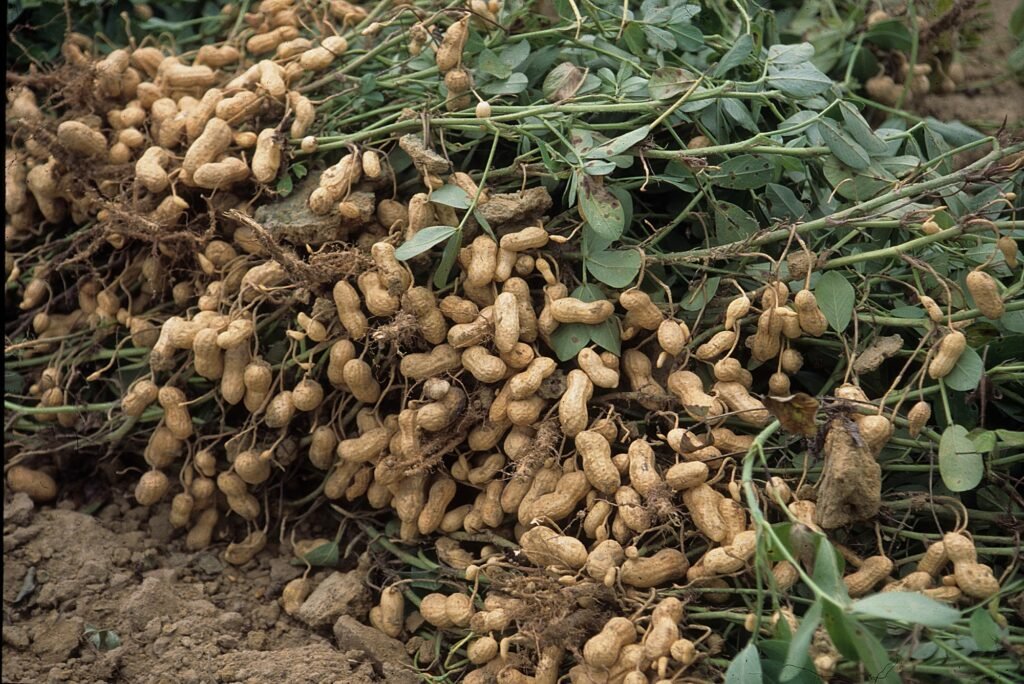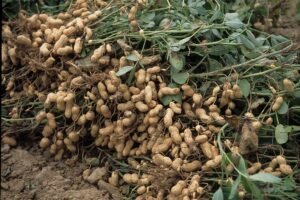DURHAM, N.C. — Every September 13 marks National Peanut Day, a celebration of the humble peanut: that crunchy, protein-packed legume that shows up in everything from peanut butter and snacks to sauces and sweets. But beyond tasty treats, peanuts are also a quietly powerful force in North Carolina’s farm economy.
Peanuts & North Carolina: A Snapshot
Recent data shows that North Carolina is ranked third in the U.S. for peanut production.
In 2024, farmers harvested about 129,000 acres of peanuts, yielding approximately 4,400 pounds per harvested acre, for a total of 567.6 million pounds of peanuts. In 2021, North Carolina produced around 452 million pounds of peanuts across 113,000 acres. Four of the state’s top producing counties include Bertie, Martin, and Halifax. The dominant type grown in NC is the Virginia-type peanut, large-kernel and used heavily for in-shell uses or cocktail nuts.
Growth, Innovation, and Economic Impact
Peanut yields have seen a strong upward trend. At the 2024 meeting of the North Carolina Peanut Growers Association (NCPGA), farmers noted that average yields are now at – or forecast to be – about 4,216 pounds per acre on ~127,840 acres.

NC peanuts contributed over $100 million in cash receipts in 2021 — about 3% of the state’s total cash crop value, according to NC State researchers. Research, innovation, and collaborations (for example with NC State University) have improved varieties, pest control, and cultivation practices, helping mitigate risks from insects, disease, and weather.
Why Peanuts Matter — Beyond the Numbers
Peanuts offer more than just flavor and protein. They are:
Nutritionally dense: high in protein, healthy fats, fiber, and a number of essential minerals and vitamins. Good for crop rotations: Peanuts fix nitrogen in the soil and can help interrupt pest and disease cycles when rotated with other crops. Important culturally and locally: In many rural parts of eastern North Carolina, peanut harvests are a seasonal anchor, offering jobs and sustaining local economies.
How We in Durham & Around NC Can Support Our Peanut Farmers
On National Peanut Day and beyond, there are practical ways for citizens to help local peanut agriculture thrive:
Buy Local — Choose peanut products from NC brands or those that state “Virginia-type peanuts grown in NC” when shopping. Learn and Elevate — Try new peanut recipes, attend local farmers’ markets, and share stories about the work behind the peanut fields. Support Research & Policy — Encourage state and local representation for policies that help farmers access good seed varieties, pest management tools, and fair market channels. Know Their Challenges — Recognizing that farmers face climate risks, pest pressures (like thrips, diseases), and market fluctuations, we can back programs and organizations that help them adapt.

Image source: Sen. Brent Jackson via X (Twitter)
A Few Voices from Durham
Even well away from the sandy loams of the Peanut Belt, the ripple of this industry is felt in Durham.
“Every time I buy peanut butter or shelled nuts with a NC label, I picture those fields in Halifax or Bertie. That’s where my dollar walks,” said Marisol Hernandez, owner of a local café downtown, describing her priority to source locally. “Peanuts are part of the seasonal rhythm here — summer rains, fall harvest, that smell in the air,” reflected J.T. Walker, a community gardener. “It’s modest, but it’s honest work.” “We’ve got to treat farming not just like tradition, but like innovation,” said Dr. Elaine Cho, an extension specialist at North Carolina State. “Better seeds, better methods, better support — that keeps peanut farming sustainable.”
Looking Ahead
As National Peanut Day gives us reason to celebrate, it also invites us to reflect: How do we ensure that generations from now, those farm fields in eastern NC are still producing Virginia-type peanuts at high yields, with farmers able to make a good living?
Peanut day may be a single date on the calendar, but for North Carolina’s peanut growers, every planting season tells a story — of soil, sun, sweat, and hope. Supporting them means more than enjoying peanuts today; it means caring for the roots of an industry that sustains land, livelihoods, and lives.












